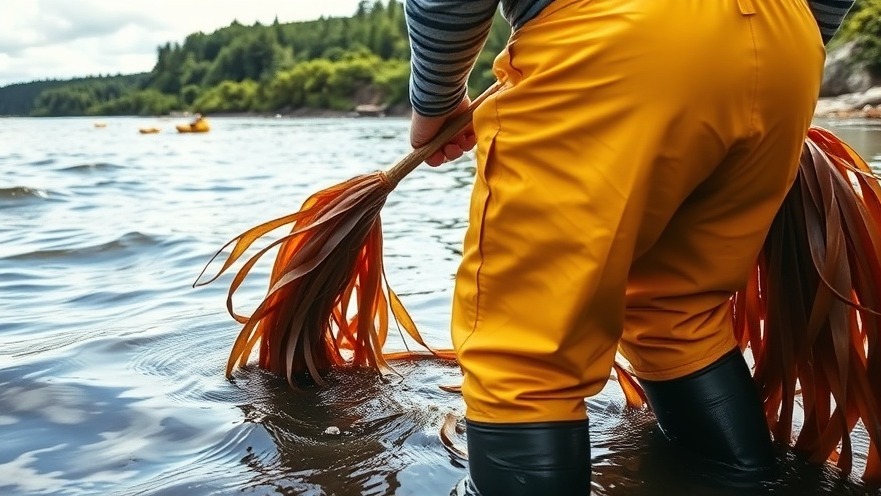
Revitalizing Washington's Kelp Forest: A Community Effort
In the serene depths of Washington state’s Puget Sound lies a world teeming with life, epitomized by the bull kelp, a form of seaweed crucial for the marine ecosystem. It serves as a nursery for young fish like salmon and herring, while orca whales creatively use the kelp for grooming. Yet, this underwater forest is facing unprecedented challenges due to climate change, pollution, and increasingly warm waters. The Puget Sound Restoration Fund (PSRF) is harnessing community spirit through a unique approach: kelp gardening.
The Delicate Balance of Kelp Growth
Bull kelp, striking a resemblance to the sturdy bullwhip, is not as resilient during its formative stages. When waters become too warm, young kelp plants often succumb before they can securely attach to the ocean floor. As Jessi Florendo, the habitat program coordinator at PSRF, emphasizes, "Kelp have been proven to be pretty sensitive to changes in temperature." Compounding the threat are specific pollutants and invasive species, the exact impacts of which are still under investigation.
A Low-Tech Solution with High Community Involvement
Despite setbacks—this year's kelp gardens did not survive—the PSRF remains undeterred. Kelp gardening, a simple and community-centric method, employs natural materials such as rocks and ropes to anchor kelp securely, making the restoration process accessible and shareable. Florendo articulates a vision of creating a "rule book" for successful kelp restoration based on years of research and experimentation. Since 2019, the organization has tested various growth methods and planting techniques, working to identify the most effective strategies.
Why Kelp Matters
Restoring kelp forests has far-reaching implications beyond the marine landscape. Healthy kelp forests can support fisheries, protect coastal lines, and contribute to carbon capture, all of which align with broader sustainability goals that many businesses seek to achieve. For boutique hospitality professionals, there lies an opportunity: supporting local restoration efforts not only enhances ecological health but also adds a unique narrative to their eco-conscious offerings.
Integrating Kelp Conservation into Hospitality
As small-scale hotel owners and eco-lodge operators look for ways to boost their sustainability credentials, embracing kelp gardening could be a win-win. By partnering with organizations like PSRF, they can incorporate local environmental conservation into their business practices. Activities could range from hosting educational workshops on kelp ecology to initiating on-site kelp garden displays that educate guests about local marine ecosystems and the importance of conservation.
Future Trends: The Community’s Role in Restoration
The future of Washington state’s kelp shall depend heavily on community involvement and innovative solutions. As climate complexities introduce challenges, partnerships between nonprofit organizations and local businesses can cultivate resilience. This community-centric approach reimagines kelp gardening as essential not only to the ecosystem but also as a vital strategy for local economies that rely on sustainable tourism.
Take Action for a Sustainable Future
As the kelp forests continue to struggle, it is imperative for all stakeholders—scientists, businesses, and individuals—to unite in action. By supporting local conservation initiatives, boutique hotel owners and eco-lodges can become champions of ecological sustainability. Not only does this help preserve the beauty of Washington state, but it also enriches the experience for eco-conscious travelers seeking meaningful interactions with nature. Imagine welcoming guests who are excited to share in the restoration journey, woven into their stay at your establishment!
Ready to make a change? Reach out to local conservation groups today or look into starting your own kelp gardening initiative. Every small effort counts towards reviving these underwater forests and protecting our precious marine ecosystems.
 Add Row
Add Row  Add
Add 




Write A Comment